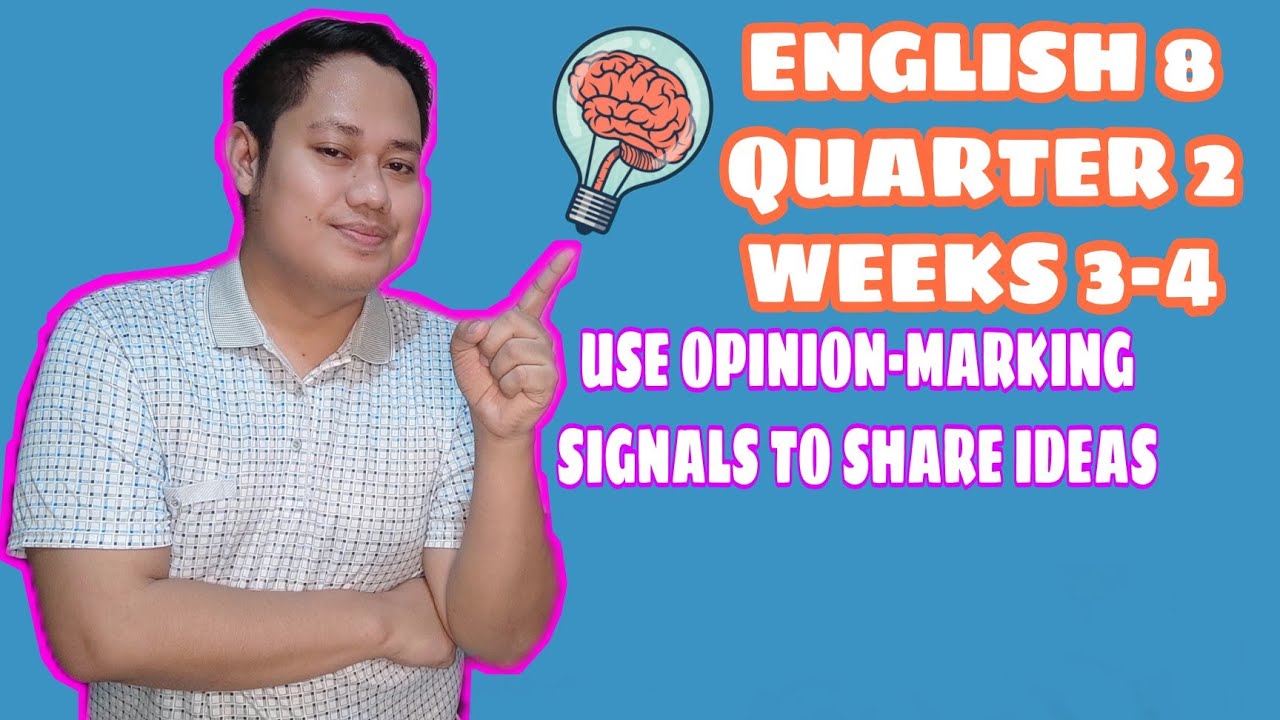How to Identify Fact vs. Opinion in Writing & Research
Summary
TLDRThis transcript emphasizes the importance of distinguishing between facts and opinions in crafting a top-notch research paper. A strong thesis supported by verified facts is crucial for a convincing argument, while opinions, being subjective and biased, weaken the paper's credibility. Tips are provided to identify credible sources, such as scrutinizing the author's background for biases and recognizing statements that involve personal feelings as opinions. The example of cronuts illustrates how factual information can be verified, unlike subjective opinions. The key takeaway is to choose the strongest, fact-based sources to enhance the quality of research work.
Takeaways
- 📝 Writing a research paper requires a strong thesis statement supported by objective, solid facts.
- 🔍 Opinions are generally not suitable for research papers as they weaken arguments and are subjective.
- 🧐 Facts are accepted by the majority, verified by experts, and are proven information, making them ideal for research papers.
- 🤔 Distinguishing between facts and opinions is crucial for selecting credible sources in research.
- 👨🏫 Consider the author's background and potential biases when evaluating the credibility of a source.
- 🗣️ Statements involving personal feelings or beliefs are likely to be opinions rather than facts.
- 🍩 The example of cronuts illustrates the difference between a subjective opinion and verifiable facts.
- 🔍 Verifying the creator of cronuts and the public's reaction to them demonstrates the process of confirming facts.
- 📰 Newspaper reports and other sources can confirm the factuality of events, such as the creation of cronuts.
- 👀 Be aware of sources that may appear credible but could be influenced by the author's extreme viewpoints.
- 📈 The popularity of cronuts, like any trend, can fluctuate, but the facts about their creation remain constant.
Q & A
What is the key element required for writing a top-notch research paper according to the transcript?
-A strong thesis statement supported by objective, solid facts is essential for writing a top-notch research paper, as it makes the argument more convincing and improves the overall quality of the paper.
Why are opinions generally not the best choice for research papers?
-Opinions are not the best choice for research papers because they are subjective, based on emotions or personal beliefs, open to interpretation, and cannot be confirmed, which weakens the argument.
What is the main difference between an opinion and a fact in the context of a research paper?
-An opinion is subjective and inherently biased, while a fact is accepted by the majority, verified by experts, and is proven information.
How can one determine if a source has a bias based on the author's point of view?
-If the author is known for having extreme points of view, especially on controversial topics, it may indicate a bias. Researching the author's background can help determine if there is a bias in the source.
What is a simple way to identify an opinion in an interview or article?
-Statements that involve personal feelings, such as 'I think,' 'I feel,' or 'my belief is that,' are strong indicators of an opinion.
Can you provide an example of an opinion from the transcript?
-An example of an opinion from the transcript is the statement 'cronuts are the greatest dessert pastry of all time and they make your taste buds dance.'
What are cronuts and who is credited with their creation according to the transcript?
-Cronuts are a trendy dessert pastry that combines features of a croissant and a doughnut. Dominique Ansel is credited with their creation.
How did people initially react to cronuts according to the transcript?
-People initially reacted with great enthusiasm to cronuts, with newspaper reports confirming that they waited in long lines for hours to get one.
What happens to the popularity of a trend like cronuts over time according to the transcript?
-The popularity of a trend like cronuts may die down after a few months, as the initial excitement fades.
How can one confirm a statement as a fact for their research paper?
-A statement can be confirmed as a fact if it is proven to be true and can ideally be verified from multiple credible sources.
Why is it important to distinguish between facts and opinions when choosing sources for a research paper?
-Distinguishing between facts and opinions is important to ensure that the sources chosen are strong and credible, which in turn strengthens the research paper's argument.
Outlines

This section is available to paid users only. Please upgrade to access this part.
Upgrade NowMindmap

This section is available to paid users only. Please upgrade to access this part.
Upgrade NowKeywords

This section is available to paid users only. Please upgrade to access this part.
Upgrade NowHighlights

This section is available to paid users only. Please upgrade to access this part.
Upgrade NowTranscripts

This section is available to paid users only. Please upgrade to access this part.
Upgrade NowBrowse More Related Video

ENGLISH 8 QUARTER 2 WEEK 3-4 USE OPINION-MARKING SIGNALS TO SHARE IDEAS

#2 How to Write the Introduction Paragraph of a Research Paper?

How to Provide Evidence for Your Argument Essay

BAB ruang lingkup biologi - metode ilmiah - #biologi sma kelas 10

Bahan Ajar Struktur Teks Argumentasi, Kalimat Fakta dan Opini

MERDEKA BELAJAR | ARTIKEL ILMIAH POPULER | BAHASA INDONESIA KELAS VIII | BAGIAN 1 | BELAJAR ONLINE
5.0 / 5 (0 votes)